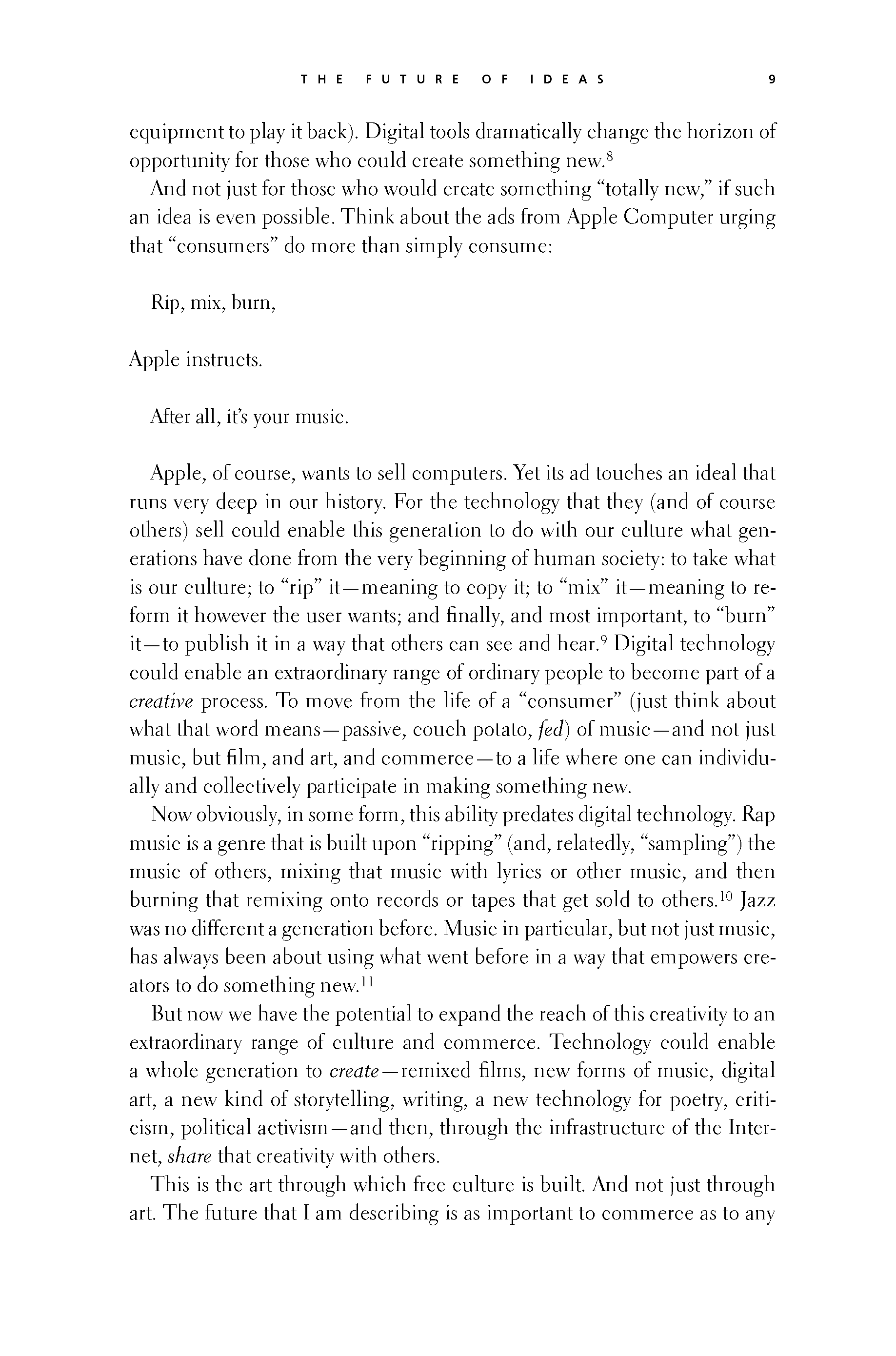 p008 _
-chap- _
toc-1 _
p009w _
toc-2 _
+chap+ _
p010
p008 _
-chap- _
toc-1 _
p009w _
toc-2 _
+chap+ _
p010
equipment to play it back). Digital tools dramatically change the horizon of
opportunity for those who could create something new.[1-8]
And not just for those who would create something "totally new," if such
an idea is even possible. Think about the ads from Apple Computer urging
that "consumers" do more than simply consume:
____ Rip, mix, burn,
Apple instructs.
____ After all, it's your music.
Apple, of course, wants to sell computers. Yet its ad touches an ideal that
runs very deep in our history. For the technology that they (and of course
others) sell could enable this generation to do with our culture what gen-
erations have done from the very beginning of human society: to take what
is our culture; to "rip" it -- meaning to copy it; to "mix" it -- meaning to re-
form it however the user wants; and finally, and most important, to "burn"
it -- to publish it in a way that others can see and hear.[1-9] Digital technology
could enable an extraordinary range of ordinary people to become part of a
_creative_ process. To move from the life of a "consumer" (just think about
what that word means -- passive, couch potato, _fed_) of music -- and not just
music, but film, and art, and commerce -- to a life where one can individu-
ally and collectively participate in making something new.
Now obviously, in some form, this ability predates digital technology. Rap
music is a genre that is built upon "ripping" (and, relatedly, "sampling") the
music of others, mixing that music with lyrics or other music, and then
burning that remixing onto records or tapes that get sold to others.[1-10] Jazz
was no different a generation before. Music in particular, but not just music,
has always been about using what went before in a way that empowers cre-
ators to do something new.[1-11]
But now we have the potential to expand the reach of this creativity to an
extraordinary range of culture and commerce. Technology could enable
a whole generation to _create_ -- remixed films, new forms of music, digital
art, a new kind of storytelling, writing, a new technology for poetry, criti-
cism, political activism -- and then, through the infrastructure of the Inter-
net, _share_ that creativity with others.
This is the art through which free culture is built. And not just through
art. The future that I am describing is as important to commerce as to any
[[9]]
p008 _
-chap- _
toc-1 _
p009w _
toc-2 _
+chap+ _
p010